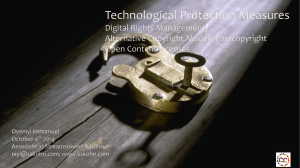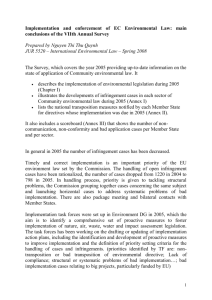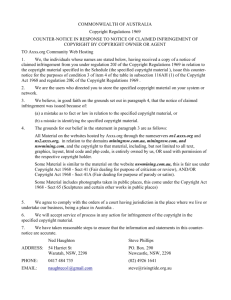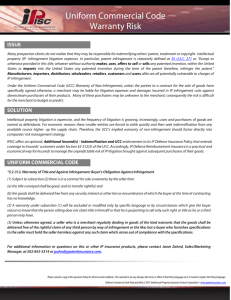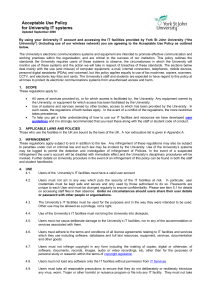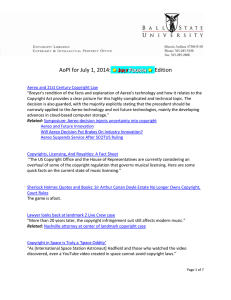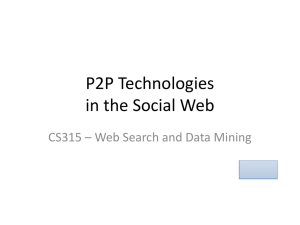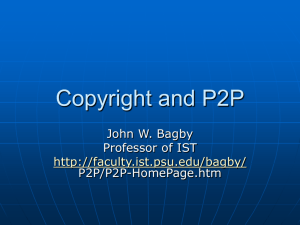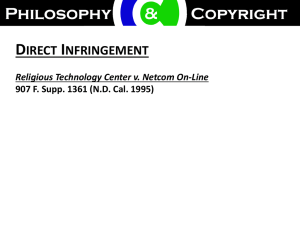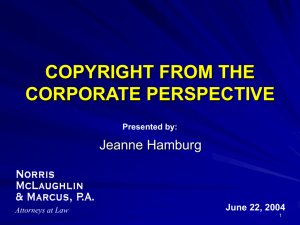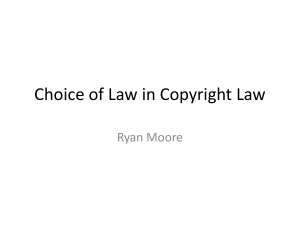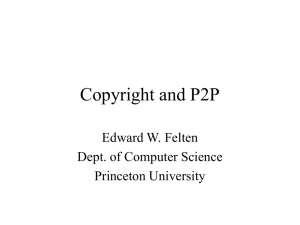Copyright Infringement
advertisement
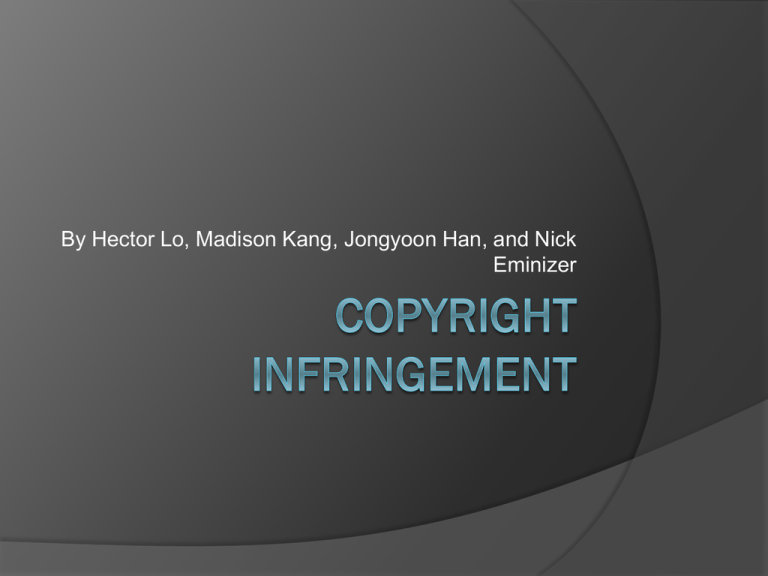
By Hector Lo, Madison Kang, Jongyoon Han, and Nick Eminizer Introduction Copyright infringement is when someone other than the copyright owner copies the “expression” of a work without the owner’s permission Copyright infringement can occur without even directly copying. Occurs if the infringing work is “substantially similar.” 5 rights for copyright holder: The Right to Reproduce the Work The Right to Derivative Works The Right to Distribution The Right to Public Display The Right to Public Performance Background Information Copyright infringement (or copyright violation) is the unauthorized use of material that is protected by intellectual property rights law Infringement includes the unauthorized or unlicensed copying of a work subject to copyright Broader Definition Copyright infringement includes the works of creative commons Creative commons is an organization that allows for the copyright author to determine the uses available for people who want to use their works. How Copyright Infringement is Being Dealt With Copyright Law Litigation Copyright Law Copyright exists until 70 years after the death of the last author After that period, the work becomes a part of the “public domain” This means anyone can download, publish, use, or sell the piece. Litigation Recording Industry Association of America (RIAA) Sued people who shared songs Those who settle the suit face charges of around $3,000, those who don’t settle can face stiffer penalties US copyright laws allow fines up to $150,000 per copyrighted work They’re also looking into suing file-sharing sites Kazza was sued for damages against the recording industry and settled for $100 million They no longer provide free file-sharing services Recently, though, the music industry has been pursuing a different strategy They’ve stopped prosecuting individuals as frequently Instead, they’re cooperating with internet service providers to stop infringement before it starts. Our Opinion on the Issue Copyright infringement is undoubtedly an important issue. Everyone has the right to own their ideas and creations and they have the right to reap the benefits of the distribution of those ideas. Even so, though, it’s simply not possible to prosecute everyone who violates copyright law on the small scale. We think it’s best to bring litigation against the largest violations of copyright law that result in the worst losses We also like the recent shift away from prosecuting the individual to trying to stop the problem at its source. Hopefully by shifting focus on to the big picture, it can remain clear that the recording and other industries that own intellectual property are serious about keeping infringement in the public eye, while they’re not wasting time with small cases. It’s more important to attack the root of the problem. Bibliography http://www.clickandcopyright.com/copyrightinfringement.aspx http://www.pcworld.com/article/112364/music_labels _declare_war_on_file_swappers.html http://news.bbc.co.uk/2/hi/technology/5220406.stm http://www.pdinfo.com/copyrt.php http://chronicle.com/article/Music-Industry-Will-StopMa/42156/ Scott, Brian. "Definition of Copyright Infringement." http://www.researchcopyright.com/article-definitionof-copyright-infringement.php
